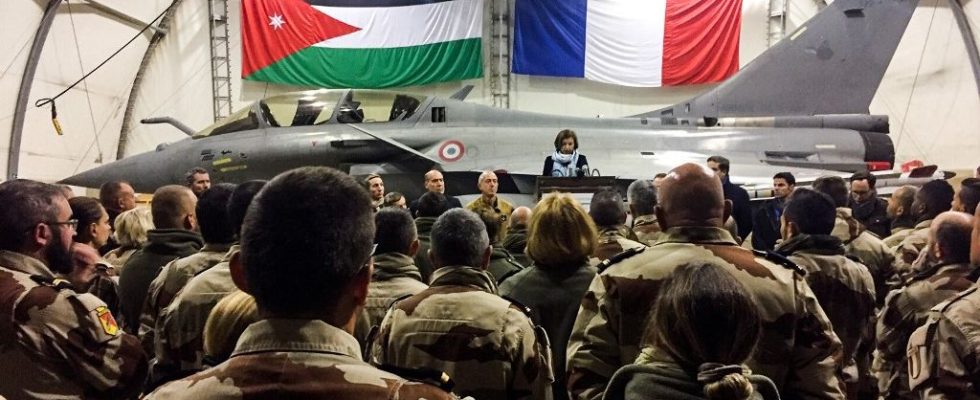France was not used to this. By intercepting missiles fired by Iran at Israel this weekend from its Jordanian base, the French army became involved in increasing tensions in the Middle East. An interventionism which contrasts with the usual reserve of French military forces in this part of the world.
How and why did France intervene? Is this an evolution of French military doctrine? What can this change? 20 minutes asked these questions to Yves Boyer, former deputy director of the Foundation for Strategic Research (FRS) and specialist in defense issues.
How did France intervene?
Emmanuel Macron explained it this Monday morning on television: France carried out “interceptions” of Iranian missiles targeting Israel. In Jordan precisely, France has had a military air base since 1969 on which four Rafale planes and a medium-range “Mamba” anti-missile ground-to-air battery are currently stationed, the operation of which we explained to you here.
On Saturday evening, Iran fired 170 drones, 110 ballistic missiles and 30 cruise missiles at Israel. Neither Emmanuel Macron, who speaks of “interceptions” in the plural, nor the French army, have communicated their exact number or their nature. “No doubt it was the Rafales which carried out these interventions”, estimates Yves Boyer who has difficulty imagining “the use of Aster missiles which cost several hundred thousand euros to shoot down a drone”.
Why such an intervention?
These interceptions were carried out at the request of Jordan, said the head of state. “Jordan wanted to avoid missiles falling on its territory. This is the only rational reason,” believes the specialist in defense issues. Yves Boyer also specifies that Jordan is a Sunni country, traditionally in conflict with Shiite countries, led by Iran, and “rather in the Western camp, like Qatar or the United Arab Emirates”.
The professor emeritus also links this action to the French political agenda: “We see the president displaying his warlike posture – remembering his declaration on possible sending of troops to Ukraine against Russia. The European elections are looming and there is a decline in the political attractiveness of Renaissance (the presidential party). This intervention allows Macron to be spoken of as a war leader.”
What can that change?
It is difficult to predict the future and anticipate the reactions of the different countries concerned. But by carrying out this military intervention, France has achieved a first: “Until now, there had never been a direct military intervention by France for the benefit of Israel,” notes Yves Boyer. Sufficient to mark a profound change in French doctrine or strategy? “I see it more as a political shift than a military doctrine,” continues the former deputy director of the Foundation for Strategic Research (FRS).
And for Yves Boyer this sequence leads “to a situation of pat (a strategic draw in chess) from which everyone comes out a winner: Israel can boast of having protected its population; Iran for taking revenge for Israel’s April 1 attack on its embassy in Damascus, Syria, killing eleven people, including seven Revolutionary Guards; And Emmanuel Macron to occupy the media space by cultivating his stature as a war leader.

